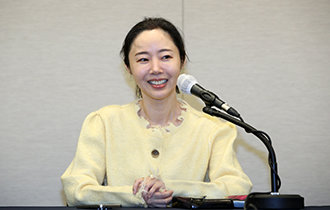Officials Mull Inheritance Tax Reform
In the report titled, Mid-to-long term taxation reform measures made early this year, the Ministry of Finance and Economy (MOFE) said that the inheritance and gift taxes are being abolished or loosened around the world.
According to the proposed reform measure, the standard for the taxation of the inheritance tax may change from the total amount of inheritance to the amount of acquired inheritance by the inheritor. There is also a measure to reduce the burden of the gift tax.
The report is not consistent with the remarks by high-ranking officials of the MOFE that the argument that the abolition of the inheritance tax is a global trend is wrong and there is no plan to reduce the tax rate.
In the report, the MOFE said that countries around the world are abolishing or loosening the tax and there is a need to change taxation standards to go with the global trend.
The report cited the U.S. that enacted a law to abolish the inheritance tax in 2010 and also pointed to Italy, Sweden and Australia, that already abolished the inheritance and gift taxes. New Zealand and Portugal were cited as examples that abolished only the inheritance tax.
The report shows that the MOFE views current taxation as unreasonable and is looking for measures to improve it.
Kwon Hyeok-se of the Property and Consumption Tax Division said on May 16, The U.K. France, Germany and Japan are still imposing the inheritance tax. Therefore the argument that the abolition of the inheritance tax is a global trend is not true.
However experts think that the government recognizes the need to loosening the inheritance tax, but that it worries too much about the political risk and is reluctant to deal with the issue publicly.
The report contains measures to make the gift tax rate lower than the inheritance tax rate to boost growth potential.
With the reduced gift tax rate, parents, while alive, will be able to leave more property to their children, increasing liquidity and economic vitality. For instance, the U.K. made the gift tax rate half that of the inheritance tax rate.
The report also has measures to make special cases where businessmen give their business property, such as plants and buildings, to their children.
Professor Choi said, Under the current law, the inheritance given to children within 10 years of death is viewed as an inheritance and the inheritance tax is imposed. When the scope of the inheritance is narrowed, the burden of donating will be reduced, increasing the number of donors.
Currently, the inheritance tax is imposed based on the total amount of property, the gift tax is based on the property given to individuals. The MOFE said that the taxation system leads to unreasonable tax payments.
With the increase in divorce and remarriage, the number of co-inheritors is increasing. Imposing the inheritance tax based on total property even when there is a big disparity of the amount of inheritance by inheritor does not take into account the ability of individuals to bear tax.
Accordingly, imposing the inheritance tax based on each individuals inherited property is desirable. The desirable taxation means the more the inheritance, the more the tax burden.
Ahn Jong-beom, professor of economics at SungKyunKwan University, said, The inheritance tax does not hurt the competitiveness of companies, but the tax burden may cause capital to flow out of the country. Taxation reform should take this into consideration and be implemented.
legman@donga.com






